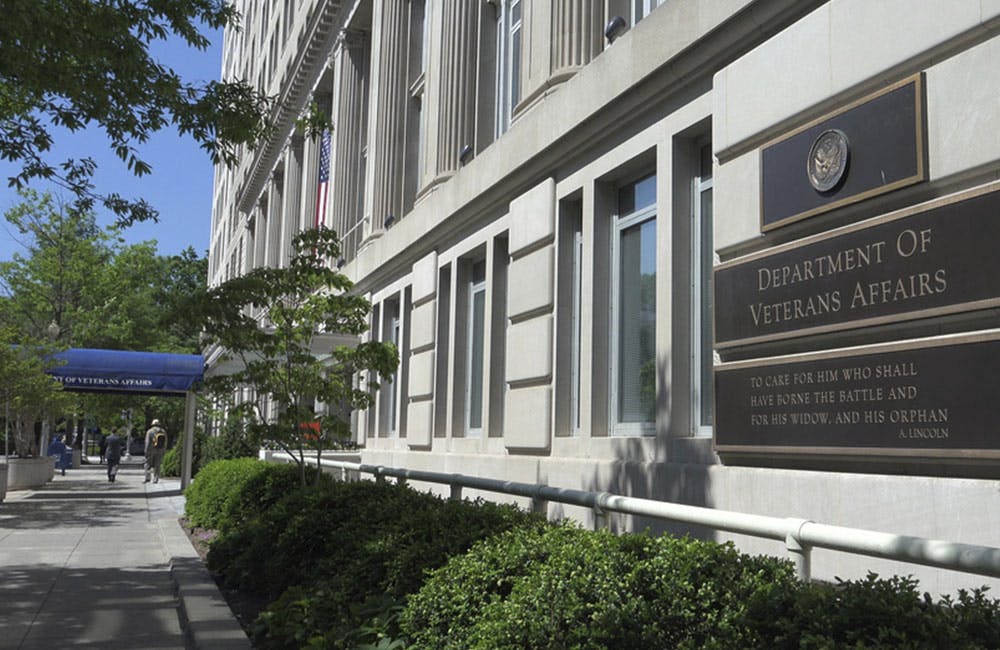HHS Releases Trustworthy AI Playbook, Website

The Department of Health and Human Services has released its artificial intelligence playbook to provide high-level information about trustworthy AI and guidance for deploying AI across its typical lifecycle.
HHS published its Trustworthy AI (TAI) Playbook, alongside the launch of its AI website, nearly a year after the agency released its AI Strategy and appointed Oki Mek as its first chief AI officer. The new playbook looks to meet requirements from OMB M-21-06 and Executive Order 13960, which call on agencies to encourage AI innovation and growth while establishing ethics and principles around the technology.
The playbook aims to guide HHS leadership to create policies around TAI and evaluate risks associated with AI investments, while also highlighting how program and project managers can incorporate it properly, work with teams before building AI solutions, oversee projects throughout their lifecycle and mitigate risks.
Rather than cementing a formal policy or standard, the playbook paints broad strokes for AI adoption to promote White House TAI principles, centralize relevant federal and non-federal resources, and set a framework for smart adoption throughout the AI lifecycle and future use.
“HHS has a significant role to play in strengthening American leadership in artificial intelligence,” Mek said in the playbook. “As we use AI to advance the health and wellbeing of the American people, we must maintain public trust by ensuring that our solutions are ethical, effective and secure.”
The playbook highlights six principles that the agency should apply across “all phases of an AI project,” which call on HHS’s AI to be fair and impartial, transparent and explainable, responsible and accountable, robust and reliable, safe and secure, and stewards of privacy.
From those principles, the playbook looks across the AI lifecycle, from initiation and conception through deployment and operational maintenance to underscore how to apply those principles across common and critical steps for AI adoption.
The playbook provides various use cases across various stages of the lifecycle to indicate how to apply the principles in steps like designing solutions and evaluating model risk factors. These use cases include automated medical document processing, AI for medical billing fraud detection, chatbots for customer service and more.
Mek hopes that this information the playbook provides will increase success rates of AI projects across HHS.
“As many studies have shown that about 85% of AI projects fail, the playbook helps guide the build of trustworthy AI and will help increase the success rates,” Mek said in a social media post announcing the HHS AI website and playbook. “To truly realize the benefits of AI, we must communicate, share and collaborate across the health sector. AI provides us with an immense instrument to keep the flame of intelligence glowing even brighter.”
With the playbook in place, HHS will focus on further collaboration and dialogue around AI in 2022. These include:
- Cultivating the HHS AI community of practice
- Hosting further AI lunch and learn sessions for HHS personnel
- Standing up the HHS AI Council to execute the HHS AI strategy
- Expanding the playbook as needed to promote ethical and trustworthy AI
- Developing an AI use case inventory
This is a carousel with manually rotating slides. Use Next and Previous buttons to navigate or jump to a slide with the slide dots
-

White House Science Chief: US-Driven AI Sets Global Standards
Michael Kratsios outlined how American AI technology on the global stage will help standardize the tech and counter China’s influence.
5m read -

Modernizing Critical Infrastructure in the Face of Global Threats
Officials are expanding the latest strategies in boosting defense infrastructure, including securing satellite communications, upgrading enterprise-wide technology, optimizing data management.
20m watch -

Trump AI Orders Call for Speed in Building Infrastructure
The directives call for expanding AI infrastructure, streamlining federal permitting and promoting AI exports.
4m read -

DOD Accelerates Software Modernization with Agile DevSecOps Push
The Pentagon's software implementation plan tackles cultural hurdles and integrates security early to deliver critical capabilities faster.
6m read -

White House Unveils AI Action Plan to Secure Global Dominance
The strategy outlines steps to accelerate private sector innovation, build critical infrastructure and advance U.S. leadership in AI policy and security.
3m read -

VA's Platform One Powers Rapid Innovation to Bolster Digital Services
VA's Platform One accelerates software development timelines from weeks to hours, ultimately enhancing digital services for veterans.
5m read -

Opinion: Original Intelligence Is the Missing Piece for AI Transformation
Limitations of AI agents and development drive growing needs for workforce development and "original intelligence."
3m read -

Pentagon's $200M AI Contracts Signal Broader Effort to Transform Talent
The Army is leveraging Silicon Valley, reservist programs and new hiring strategies to integrate critical digital skills in its ranks.
5m read -

AI Foundations Driving Government Efficiency
Federal agencies are modernizing systems, managing risk and building trust to scale responsible AI and drive government efficiency.
43m watch -

Agencies Tackle Infrastructure Challenges to Drive AI Adoption
Federal agencies are rethinking data strategies and IT modernization to drive mission impact and operational efficiency as new presidential directives guide next steps.
5m read Partner Content -

Generative AI Demands Federal Workforce Readiness, Officials Say
NASA and DOI outline new generative AI use cases and stress that successful AI adoption depends on strong change management.
6m read -

The Next AI Wave Requires Stronger Cyber Defenses, Data Management
IT officials warn of new vulnerabilities posed by AI as agencies continue to leverage the tech to boost operational efficiency.
5m read
















